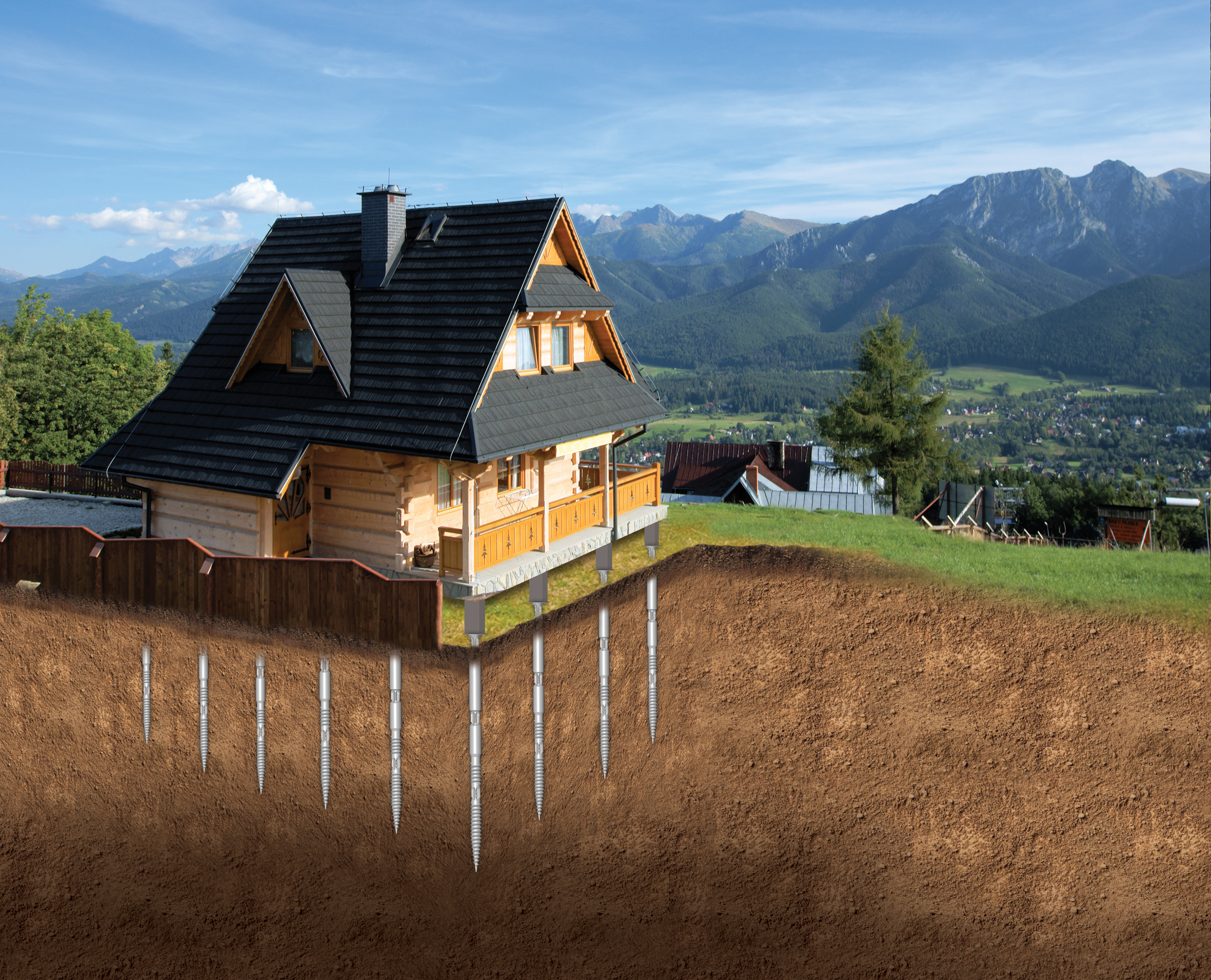Monday, September 1, 2025
Durability of screw piles in various soil conditions

Investing in foundations is a decision that has an impact for years to come. If you're considering using screw piles, a natural question arises about their durability and resistance to the effects of time. The lifespan of this type of foundation depends on many factors, ranging from the type of steel used and anti-corrosion protection methods to specific ground conditions. A proper assessment of these parameters allows for the selection of an optimal solution that will guarantee the stability of the structure for decades.
Key Factors Affecting the Lifespan of Screw Piles
The durability of screw piles is a result of several important variables. The most important of these can be divided into three main categories: ground conditions, chemical aggressiveness of the environment, and quality of manufacturing and protection. Each of these elements plays a key role in the aging process of the structure.
Type of Soil and Its Impact on Corrosion
The type of soil in which we install the piles is of fundamental importance for their durability. Different types of soil create varying conditions that can accelerate or inhibit corrosive processes.
Non-cohesive soils, such as sands and gravels, are characterized by high permeability, which promotes rapid ventilation and drying. The lack of constant moisture retention minimizes the risk of corrosion, allowing piles in such an environment to last for over 100 years.
In contrast, cohesive soils, such as clays and silts, retain moisture for longer, which promotes the development of corrosion. In such conditions, the lifespan of piles without proper protection is shorter and is estimated at about 50 years.
Meanwhile, organic soils, such as peats or silts, are the most aggressive environment. The high content of organic compounds significantly accelerates corrosion, shortening the lifespan of piles to as little as 15–30 years, unless specialized coatings or cathodic protection are used.
Chemical Aggressiveness and Groundwater Level
The level and chemical composition of groundwater are other important elements to consider. The content of chemical substances, such as sulfates, chlorides, or mineral salts, drastically increases the rate of corrosion. Coastal areas, where sea salt and high humidity are the norm, require the use of special solutions.
The groundwater level also plays a crucial role:
Above the groundwater level, corrosion progresses, but its rate is moderate and depends on the type of soil and its moisture content.
The zone of variable water level is the most dangerous place. Alternating immersion and emergence (wetting and drying) increases oxygen access, which leads to a rapid acceleration of corrosive processes.
Paradoxically, full saturation with water, without oxygen access, can slow down corrosion.
Steel Quality and Anti-Corrosion Protection - The Foundation of Longevity
The pile's construction itself is crucial. The grade and thickness of the steel are basic parameters that determine its mechanical strength and corrosion resistance. However, it is the anti-corrosion protection that determines their actual, long-term durability.
Hot-dip galvanization is a standard and very effective form of protection. A coating with a minimum thickness of 70 microns, used in products such as Winkelmann Foundation Screw, provides multi-year protection.
Paint and epoxy coatings provide an additional protective layer that significantly extends the lifespan of piles in difficult conditions. In extremely aggressive environments, such as peats or coastal zones, advanced cathodic protection systems are used, which change the electrochemical potential of the steel, effectively preventing its destruction.
Winkelmann Foundation Screw Piles - A Foundation for Years
The approximate lifespan of screw piles depends on many factors, but professional anti-corrosion protection is key. In dry and sandy soils, Winkelmann Foundation Screw piles will last over 100 years; in moist clays, over 50 years. In the most difficult conditions (peats, marine environments), their durability is 15–30 years, unless specialized solutions are used.
Therefore, choosing the right protection is more important than ever. If you are planning an investment and have doubts about the ground conditions, contact our experts. We will help you choose the optimal solution that will guarantee the durability of your structure for years to come.